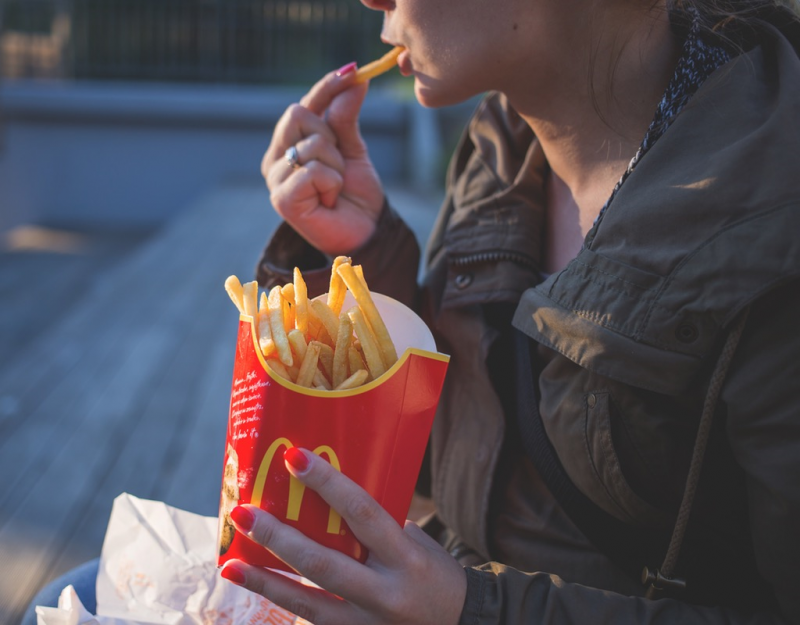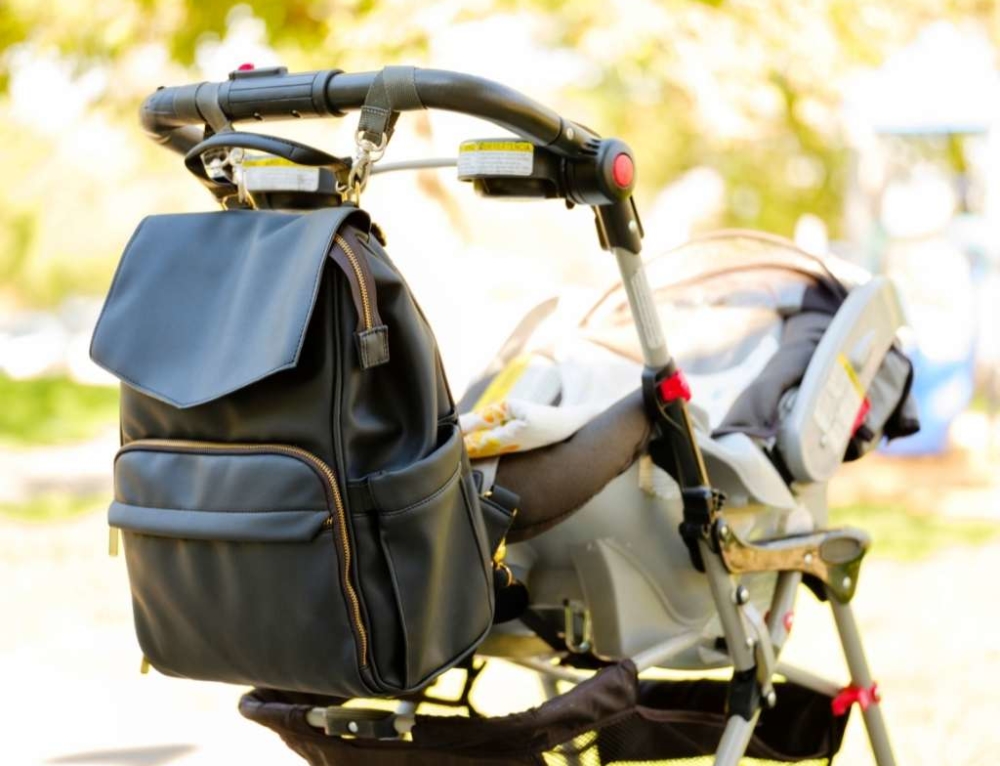Metabolism. Do you know someone who can scoff a whole pie and still look skinnier afterwards? (Meanwhile some of us can sniff a donut and put on a few kgs). Metabolism is the easiest culprit to blame when we struggle to lose weight, and it’s genetic… but does that mean you can’t programme yours?
The boffins at the Early Nutrition Program – an international program that brings together researchers from 36 institutions in 15 countries in Europe, the United States and Australia – have spent considerable time finding out whether this factor can be positively influenced by maternal diet during pregnancy, in the same way many other health factors and intelligence can.
Their research has found that besides genetic predisposition and an unhealthy lifestyle, metabolic programming by early nutrition is indeed a predisposing factor for obesity. This means that by watching what we eat while pregnant, breastfeeding and during your child’s early diet, we can positively influence their metabolism into adulthood.
What are they looking at?
Researchers are focusing their investigations on three main hypotheses when it comes to the causes of overweight and obesity:
- Does excessive in-utero exposure to glucose and other fuels permanently affect foetal development and thereby increase the risk of obesity in postnatal life?
- Does rapid weight gain during infancy increase the risks of becoming obese?
- Will a poor diet in early childhood predispose children to obesity in their adult life?
So far, studies have shown obese mothers and those who put on excessive weight gain during pregnancy have a much higher chance of their children becoming overweight themselves than those mothers who do not.
So what can you do with this information?
Health professionals have pretty much been telling us this for decades, but this research shows how far-reaching the effects are, and adds weight to the necessity of following the advice – and soon! Basically, follow a sensible diet with a variety of wholegrains, dairy, fruit and vegetables and lean meat, and teach your children to do the same. Here’s some more tips to help positively influence your child’s metabolism for the years to come:
During pregnancy:
- Consume a healthy diet, including a wide variety of fruit and vegetables, wholegrain breads and cereals, moderate amounts of low-fat dairy foods and lean meat, chicken and fish (make sure it is low in mercury), dried beans and lentils, nuts and seeds.
- Keep foods high in fat, sugar and salt to a minimum.
- Take folate supplements for the first three months of pregnancy.
- Don’t consume alcohol (also note alcohol will pass into breast milk.)
- Keep iron levels up with iron rich foods like red meat and iron enriched cereals, or your doctor may recommend iron supplements if your levels are low. Foods that are good sources of Vitamin C (like oranges) will help absorb the iron.
- Iodine is an important mineral needed for the production of thyroid hormone, which is important for growth and development. Foods rich in iodine include eggs, meat and dairy.
Breastfeeding and beyond:
- Keep up the healthy diet and plenty of water to keep a strong milk supply – exclusive breastfeeding is recommended for the first four-to-six months. Seek advice if you are having trouble, including if you wish to move to formula feeding.
- Introduce solid foods at around six months – rice cereal, then pureed vegetables and fruits are ideal.
- Include iron-containing foods in first foods to prevent iron deficiency. These include iron-fortified cereals, pureed meat and poultry dishes and some pureed vegetables. These can be introduced in any order, along with other nutritious foods.
- Ensure that spoon foods are of acceptable texture (no hard foods) and taste.
- Do not add sugar to infant foods as this increases the risk of dental caries.
- Do not add salt to foods for infants.
- By 12 months of age, children should be eating a variety of foods from the different food groups, as described in the Ministry of Health’s Eating for Healthy Babies and Toddlers.
This article was written by Melanie Hearse and adapted for Kidspot, New Zealand’s favourite parenting resource in Early Life Nutrition.
Breastfeeding is best for babies and provides many benefits. Combined breast and bottle feeding in the first weeks of life may reduce the supply of your own breast milk. Always consult your doctor, midwife or health care professional for advice about feeding your baby.







A balanced and varied diet helps not only ourselves during pregnancy but also the baby in utero and after baby is born. Learning to eat a varied diet is crucial as I think there is so many chances to access unhealthy options for eating that if we learn from a young age what is right for our bodies then it makes choices easier later on.
When I got pregnant and my first, I just went a little research crazy and try to be a healthy eater. I was lucky coz I didn’t get the nausea or vomitting. I did a few cravings here and there but was too wired up to be healthy for my baby. I’ve heard that the second or third one I may feel differently.
Interesting information here, although it is hard to eat a variety of food when so many things make you nauseous.
This is really interesting! Its fascinating to think that what your mother ate while she was pregnant with you can affect you so much! When I was pregnant with my second baby I ate a lot of junk food since anything else made me feel sick (strange I know) but he is the fittest of all of my children!
This is a fantastic article! It’s scary to think that babies who haven’t even been born yet can be affected prior to their prior by their mother’s diet. I am now on my second pregnancy and thankfully both I have been eating relatively well and healthily. I believe in eating a broad diet to expose my unborn child to a range of foods as I have heard positive things about this exposure to their future food choices.
I craved vegetables when I was pregnant, its amazing how the body knows what it needs. In saying that my body also craved sponge cake with cream hmmm. My kids are pretty normal and have no body weight issues but young kids do run around so much. I try to keep the kids away from high sugar diet though and stick to whole foods
Wowee that’s so interesting. I have healthy cravings with both my kids like fruit with my son and raw capsicums with my daughter lol 😂 I ate them like apples lol. I found this a great read.
I ate a normal healthy diet to the best I could was quite difficult sometimes with really bad morning sickness which was all day so it was tempting to eat the foods I craved but I did eat as healthy as I could. During breastfeeding i increased water intake a lot as it’s easy to forget to drink lots. As soon as the kids were old enough I introduced homemade purée with veges they never really liked bought food I guess homemade tastes best. My oldest son is really tall and slim and my daughter went through a stage of growth both height and weight and we just have to positively influence her snacks and what she eats otherwise she would eat rubbish foods that make her put on weight.
I was overweight as a pregnant mum both times. My diet pre pregnancy and during was probably pretty good – lots of fruit and vegetables, vitamins, etc. Both kids were “underweight”. And I guess only time will tell if they end up being larger. So far they are too active to really be holding weight. But puberty is coming. We try not to be too hung up on good/bad food. It’s all just food. Some has more nutritional value. We aim to eat a rainbow most days.
Interesting read. We were really fussy about what I ate when I carried my now 5 year old, I was 41 too so had to be extra aware of everything. I breastfed exclusively until she was around 6 or 7 months then introduced solids, but all home made. She has since and still does eat mainly organic foods where possible and we don’t give her much in the way of processed foods (neither do we) or refined sugars etc. I think it makes a difference also with behaviour 🙂